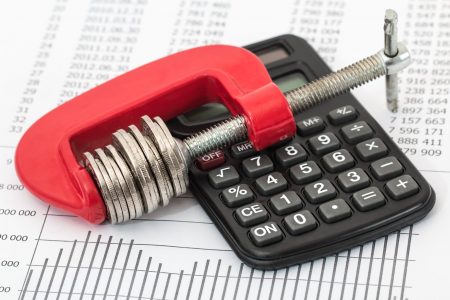A utility bill is a monthly invoice, issued by utility companies and paid by homeowners, renters, or businesses occupying a commercial space. One thing most adult Canadian have in common is paying utility bills.
Utility bills in Canada include the following:
- Electricity Bill
- Gas Bill
- Water and Sewage
- Trash and recycling
- Internet, Telephone, and Cable
There are a few different types of utility bills you need to be mindful of when relocating to Canada. At a high level, utilities can include anything from electricity to garbage removal.
Costs of your utility bills heavily depend on your families’ usage, location, local climate, and the size and age of your home. Get more familiar with the types of utility bills so you know what to expect at the end of every month.
List of Utility Bills in Canada
1. Electric Bill
The electricity bill is a very important bill as it supplies energy to all households and businesses and is most often than not the largest of the utility bills.
The electricity bill or otherwise known as the hydro bill in Canada includes many charges and fees. Depending on whether you are receiving your energy from a local utility provider or a unit sub-metering retailer, you can be paying different amounts.
On each hydro bill, you will be also paying for the cost of delivery and transmission of electricity to your house. The rate of electricity you can pay will also vary depending on whether you agreed to pay the updated regulated rate by your local utility provider or the contracted rate by an energy retailer.
2. Gas Bill
The gas bill is determined by your gas usage which depends on your cooking habits, your climate, and for how many purposes you use it. The frequency that households use gas can vary greatly as some households do not use gas at all.
In the case you only use gas for cooking your meals, you can expect your gas usage to be quite low. Also, depending on your home’s heating system, you can expect to be paying for that on your gas bill. In the case your home’s heating is fueled by oil or wood, you can expect to see that charge on another bill.
3. Water and Sewage
The cost of your water bill is mainly determined by factors such as the local cost of water and sewage removal in your area, the rate structures, the size of your water meter, and your water consumption.
You might be surprised to know that weather patterns can also affect your water usage. Your geographical location also plays a role as most urban residents tend to use significantly less water than their counterparts in suburban or rural regions.
Many might be unaware of the fact that there is a cost attached to retrieving your sewage waste and sending it to a treatment plant. That delivery cost will also be reflected in your utility bill.
4. Trash and Recycling
Another type of waste that Canadian households everywhere need is waste removal. Waste removal covers the disposal of your black garbage bags, your blue bin recyclables, and your green bin organic waste.
Depending on your location, you might experience different rates for different coloured bins of waste. The retrieval of recyclables might be supervised by a separate organization than your garbage or organic waste.
In most cases, blue bin recyclables will be removed at a lower cost to you, which is great in terms of savings. Each city will set its own monthly garbage removal cost. Some cities offer residents one or two free bulk, brush or appliance removals per year otherwise you might have to be forced to pay extra for these services.
5. Internet, Telephone, and Cable
We need these services in our everyday lives and depending on which providers you rely on for your internet, telephone, and cable needs, you can expect to pay considerably different rates.
Whether you use a mobile or home phone, you are responsible for paying for your phone service. Most phone service companies such as Rogers or Bell offer cell service, internet and cable services as a discounted bundle, which can save you money in the long run.
In the chance that cable television is not your cup of tea, you can look into streaming services, which often charge considerably less than most cable providers.
In terms of accessing the internet, it is recommended to purchase a router as your internet service provider can charge you a rental price that can cost you more than the full purchase price of a router over time.
6. Other Miscellaneous Costs
Some other costs to be mindful of that most households might encounter are maintenance costs of their home, household security, and landscaping or snow plowing.
In the case you live in an apartment or condominium, there might be additional costs your building might charge you for to maintain the property or in case of incidentals.












